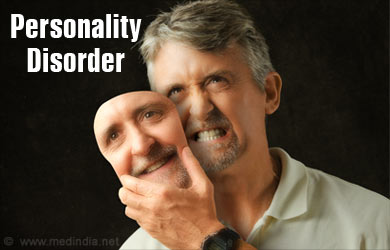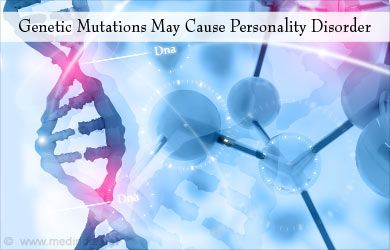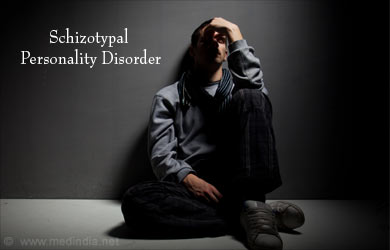- Personality Disorders - (https://www.nlm.nih.gov/medlineplus/personalitydisorders.html)
- About Personality disorders - (http://www.mayoclinic.org/diseases-conditions/personality-disorders/basics/definition/con-20030111)
What is Personality Disorder?
Personality disorders are a group of mental illnesses that involve long-term patterns of unhealthy thoughts and behaviors.
The behaviors can cause serious problems with relationships and work.

People who are affected by this have trouble in dealing with daily stress and problems. Also, they have stormy relationships with other people and often blame others for their problems. The cause of this problem is unknown. But, genes and childhood may exhibit a role.
Types of Personality Disorder
There are various types of personality disorders. As per the latest version of DSM-5, personality disorders are grouped into three main clusters based on similar characteristics and symptoms. Many people with one personality disorder may also have signs and symptoms of at least one additional type of personality disorder.
- Cluster A:
- Paranoid personality disorder
- Schizoid personality disorder
- Schizotypal personality disorder
- Cluster B:
- Antisocial personality disorder
- Borderline personality disorder
- Histrionic personality disorder
- Narcissistic personality disorder
- Cluster C:
- Avoidant personality disorder
- Dependent personality disorder
- Obsessive-compulsive personality disorder.
What are the Causes of Personality Disorder?
Personality is a combination of thoughts, emotions and behaviors that makes one unique. Causes concerning personality disorders are not completely understood. However, it is thought that personality disorders may be due to:
- Interaction of negative early life and genetic factors

- Disruptions in attachment between parents and infants
- Lack of positive caregiving in early childhood
People with borderline personality disorder may have high rates of childhood abuse, trauma or neglect.
What are the Symptoms of Personality Disorder?
Each kind of personality disorder has a list of unique symptoms and behaviors. Hallmark of personality disorder is long term and pervasive thought pattern, emotions and behaviors, which cause distress and interfere with the ability to cope in different areas of life. People have different kinds of personality disorder as below:
Cluster A: Characterized by “odd or eccentric” in thoughts or behaviors. It includes paranoid personality disorder, schizoid personality disorder and schizotypal personality disorder. For a disorder to be diagnosed, it's not necessary to show all signs and symptoms.
- Paranoid Personality Disorder: People with this type of disorder are often suspicious and mistrustful of others. Also, interpret other people's motives as harmful and can be hostile or emotionally detached.
- Schizoid Personality Disorder: It causes lack of interest in social relationships and unemotional response towards social interactions.
- Schizotypal Personality Disorder: People with this type may have peculiar dress, thinking, beliefs, speech or behavior. May show flat emotions or inappropriate emotional responses, inadequate suspicious response to others and belief that certain casual incidents or events have hidden messages especially meant for them, and have trouble forming close relationships.

Cluster B: It is characterized as dramatic, over emotional or have unpredictable thinking or behavior. They are classified into antisocial personality disorder, borderline personality disorder, histrionic personality disorder and narcissistic personality disorder. For a disorder to be diagnosed, it's not necessary to show all signs and symptoms listed.
- Antisocial Personality Disorder: People with this disorder show- disregard for the law or for the rights of others with a lack of any guilt, repeated violation of others right, impulsive behavior, consistently irresponsible, aggressive or violent behavior, persistent lying, stealing, conning others.
- Histrionic Personality Disorder: People with this disorder are constant attention seekers, highly dramatic and emotional or sexually proactive for gaining attention, speak dramatically with strong emotions, but lack facts and details to back up, easily influenced by others, shallow and rapidly changing emotions and excessively concerned about physical appearance.
- Borderline Personality Disorder: Its main features include - impulsive and risky behavior like having unsafe sex, gambling or binge eating, unstable or fragile self-image, unstable and intense relationships, mood swings on reaction to interpersonal stress, suicidal behavior or threat for self-injury, frequent intent displays of anger, intense fear of being alone or abandoned and have ongoing feelings of emptiness.
- Narcissistic Personality Disorder: People of this type exhibit - belief that they are special and more important than others, failure in recognizing others needs and feelings, exaggerate their achievements or talents, expect constant praise and admiration, are arrogant, often take advantage of others, envy of others or belief that others envy them.

Cluster C: Its general features include anxiousness and fearful thoughts and behavior. They are further classified as avoidant personality disorder, dependent personality disorder and obsessive-compulsive personality disorder. For a disorder to be diagnosed, it's not necessary to show all signs and symptoms listed.
- Avoidant Personality Disorder: People with this disorder are too sensitive to criticism or rejection, feel inadequate, inferior or unattractive, avoid work activities which require interpersonal contact, avoid new activities or meeting strangers, shy in social situations and interpersonal relationships, have fear of disapproval, embarrassment or ridicule
- Obsessive-Compulsive Personality Disorder: People with this disorder are preoccupied with details, orderliness and rules, extremely perfectionist, neglect friends and enjoyable activities for excessive commitment to work or project, rigid and stubborn, inflexible about morality, ethics or values, tight, miserly control over budget and spending money, inability to discard broken or worthless objects.
- Dependent Personality Disorder: This is characterized by - excessive dependence on others and feeling the need to be taken care of, submissive or clingy behavior toward others, difficult starting or doing projects on own due to lack of self-confidence, and requiring too much advice and reassurance from others for making even small decisions, difficult in agreeing with others due to fear of disapproval, urgent need of starting new relationship on end of close one.

How to Diagnose Personality Disorder?
The first step in diagnosis involves consulting a doctor or mental health professional for mental health assessment. The doctor will ask questions related to current symptoms or any recent events, past mental health issues, family background and relationships, medical history and any drug or alcohol problems.
If the doctor suspects of having personality disorder, exams and tests may include:
- Physical Exam: This involves asking in-depth questions about your health. In some cases, symptoms may be associated with an underlying physical health problem.
- Lab Tests: This includes blood tests like complete blood count (CBC), thyroid test (for determining if physical health problem may be causing some of your symptoms), a screening test for alcohol and drugs.
- Psychological Evaluation: This includes discussions about your thoughts, feelings and behavior and can include a questionnaire that helps to pinpoint a diagnosis.
You may be also referred to a psychiatrist or psychologist for further assessment or treatment. Identification of any kind of personality disorders requires time and diagnosis are generally made as per recognized criteria like Diagnostic and Statistical Manual of Mental Disorders (DSM-5).
How to Treat Personality Disorder?
Personality disorder is hard to deal alone and therefore talking to doctor or mental health professional is the initial step in getting support and treatment. The treatment may vary depending on type of personality disorder, severity and the life situation. As personality disorders are long-standing, treatment may require months or years. Depending on the needs and type of personality disorder, treatment patterns include:
- Psychotherapy
- Medications
- Hospitalization
Psychotherapy: This is the most effective long-term treatment option, which helps people in understanding their thoughts, motivation, and feelings of relationship with a mental health specialist, like psychiatrist or psychologist. These insights help people to manage their symptoms, have satisfying relationships and make positive behavior changes. Psychotherapy Methods include:
- Cognitive behavior therapy
- Dialectical behavior therapy
- Psychodynamic psychotherapy
- Psychoeducation

Medication: No specific medication is available for treating personality disorders. But, there are several psychiatric medicines that may be helpful to treat personality disorder symptoms. Antidepressants may be used for anxiety and depression, or to help people cope with their symptoms. Mood stabilizers can be useful in tackling mood swings or reduce irritability, impulsivity and aggression. Antipsychotic medications or neuroleptics, can be useful in symptoms that include losing touch with reality or in some cases of anxiety or anger problems. Anti-anxiety medications are useful in cases of anxiety, agitation or insomnia. But, in some cases they can increase impulsiveness, so are avoided in some personality disorders.
Hospitalization: In severe cases of personality disorders hospitalization may be required. It is only recommended when you can't take care of yourself properly or in immediate danger of harming yourself or someone else. After stabilization in the hospital, hospital program, residential program or outpatient treatment option may be recommended by your doctor.
Health Tips
Try out these lifestyle and self-care strategies along with professional treatment plan:
- Actively participate in your care: This can help in managing your personality disorder. Don't miss out any therapy sessions even if you don't like. Work towards your goals and achieve them.
- Take medicines as instructed: Even if you are well, don't skip your medications. If therapy is stopped in halfway, symptoms may come back. You may also have withdrawal-like symptoms by stopping a medication suddenly.
- Know your condition: Education about your condition can empower you and motivate in sticking to your treatment plan.
- Be active: Physical activity and exercise can ease many symptoms, like depression, stress and anxiety. Exercising can also counteract effects of some psychiatric medications that can lead to weight gain. Consider exercises like walking, jogging, swimming, gardening or any sport that you enjoy.
- Restrain from drugs and alcohol: Taking alcohol and illegal drugs can ruin your personality disorder symptoms more or interact with medications.
Get routine medical care: Don't skip visits to the family doctor, especially if not feeling well. There may be some other health problem to which attention might be required.








